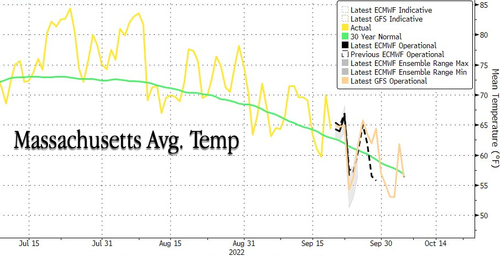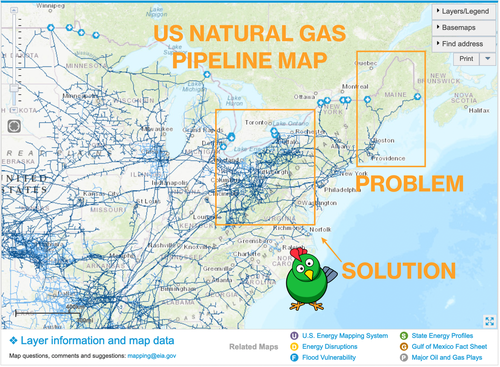Feature your business, services, products, events & news. Submit Website.
Breaking Top Featured Content:
New England’s Power Crisis Set To Return, Regulator Warns
New England’s power grid could be several cold snaps away from the start of an energy crisis that reappears whenever temperatures dip because of the state’s heavy reliance on natural gas generation, delayed/blocked expansion/upgrades to energy infrastructure, and lack of grid diversification.
Bloomberg spoke with Allison Clements, commissioner for the Federal Energy Regulatory Commission, who warned New England (for our international readers, New England consists of six states in the US Northeast, Connecticut, Maine, Massachusetts, New Hampshire, Rhode Island, and Vermont) faces another energy crisis this winter.
“We now have this every-winter crisis about what might happen in New England.
“The need for a diversified supply mix and increasingly one that doesn’t rely on a global commodity as a fuel source is important,” Clements said in an interview Monday.
Clements outlined precisely what we pointed out during last winter’s peak in a note titled “New England Is An Energy Crisis Waiting To Happen.” We said soaring NatGas prices in the region are due primarily to NatGas pipeline infrastructure having been delayed, blocked, or abandoned over the years.
She said that the region would need to increase stockpiles of NatGas and other fossil fuels ahead of this heating season to have adequate winter supplies.
Average temperatures across Massachusetts started to slope down in mid-August. Temperatures are between 55-60 degrees Freigheight, indicating the heating season could be just weeks away.
New England’s grid problem is clearly outlined in Doomberg’s chart below:
And no wonder NatGas prices in New England tend to be the highest in the US during winter periods…
Another serious issue is the controversial US law, the Merchant Marine Act of 1920, more commonly known as the Jones Act. This law helps ensure the US merchant marine fleet remains busy by only allowing US vessels to transport goods from one domestic port to another, barring foreign vessels.
This means New England can’t receive LNG shipments from the US Gulf because the US shipbuilders don’t build LNG carriers. So LNG facilities in New England have to rely on foreign shipments — adding to the complexity of the region’s issues.
And since New England competes with Europe and Asia for LNG, fuel prices could be much higher than sourcing domestically — due in part to the global energy crisis, which is way worse than last winter.
Tyler Durden
Tue, 09/20/2022 – 14:45
Continue reading at ZeroHedge.com, Click Here.


